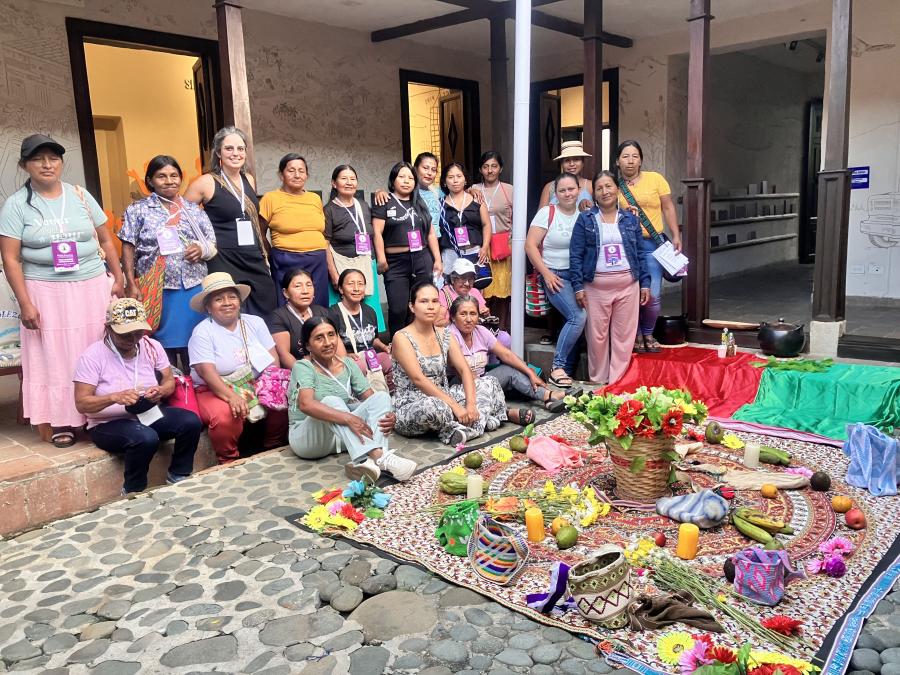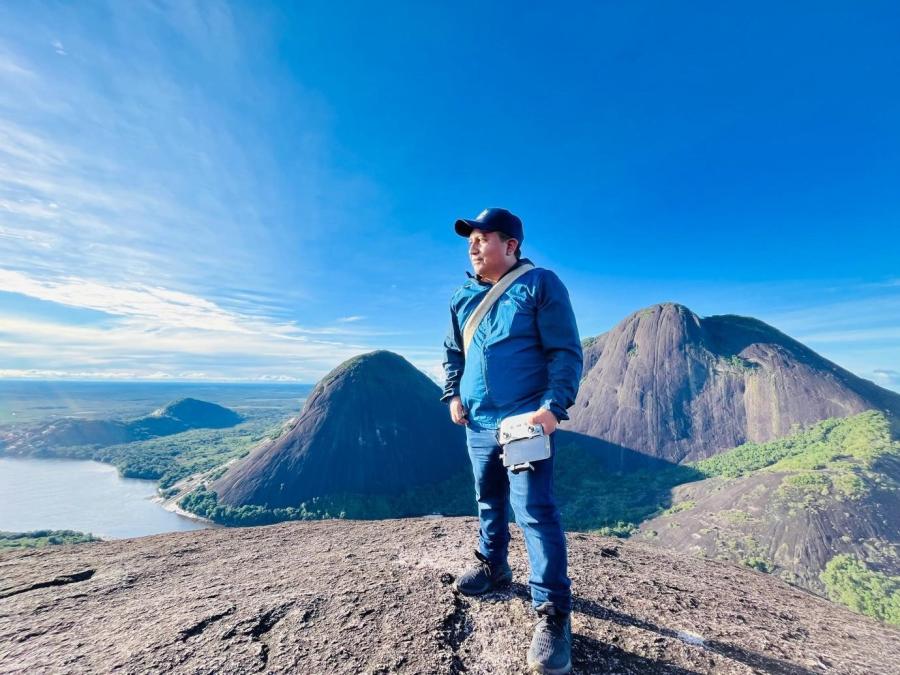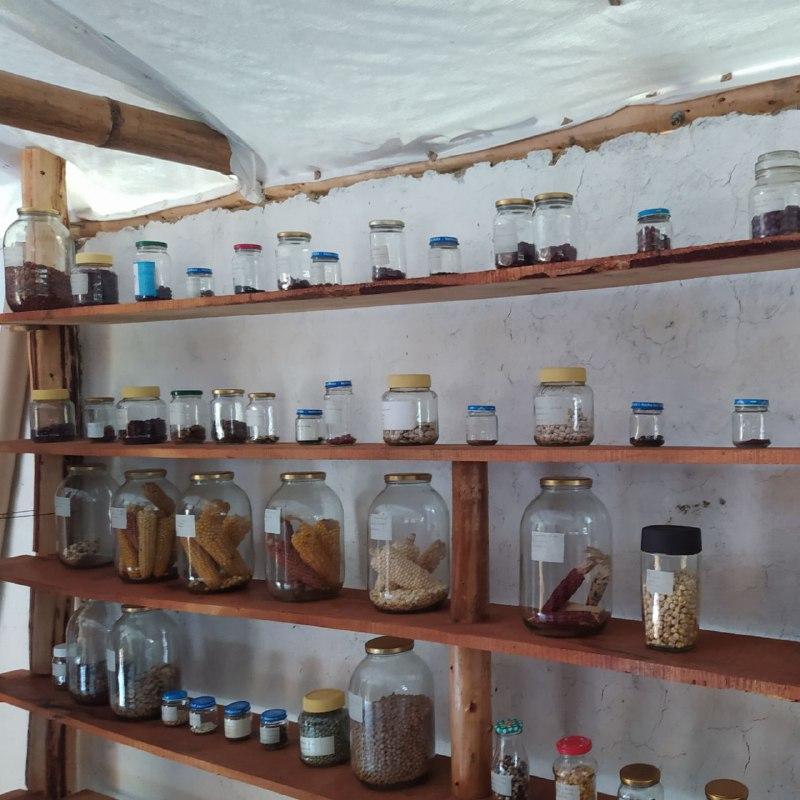
Swapping seeds is essential to protecting biodiversity. January 28 is National Seed Swap Day and an occasion to share the incredible work of Las Delicias Botanical Garden in Misak territory, San Fernando, Silvia municipality, Colombia. Their work centers around the protection of native seeds through their circulation among families, the orchard, and the seed bank. With the support of the Keepers of the Earth Fund in 2020, Las Delicias Botanical Garden implemented a comprehensive project in support of their culture, crafts, and food sovereignty, which included the implementation of family gardens, a seed bank, and a seed exchange event, among other activities.
In Misak territory, the use of heirloom seeds has been on an alarming decline. To address this issue, Las Delicias Botanical Garden decided to start building the Yell Ya (seed house) to store and safeguard the various native seed varieties, keeping them free of chemicals and genetic modification and strengthening the community’s food sovereignty and cultural practices around food.
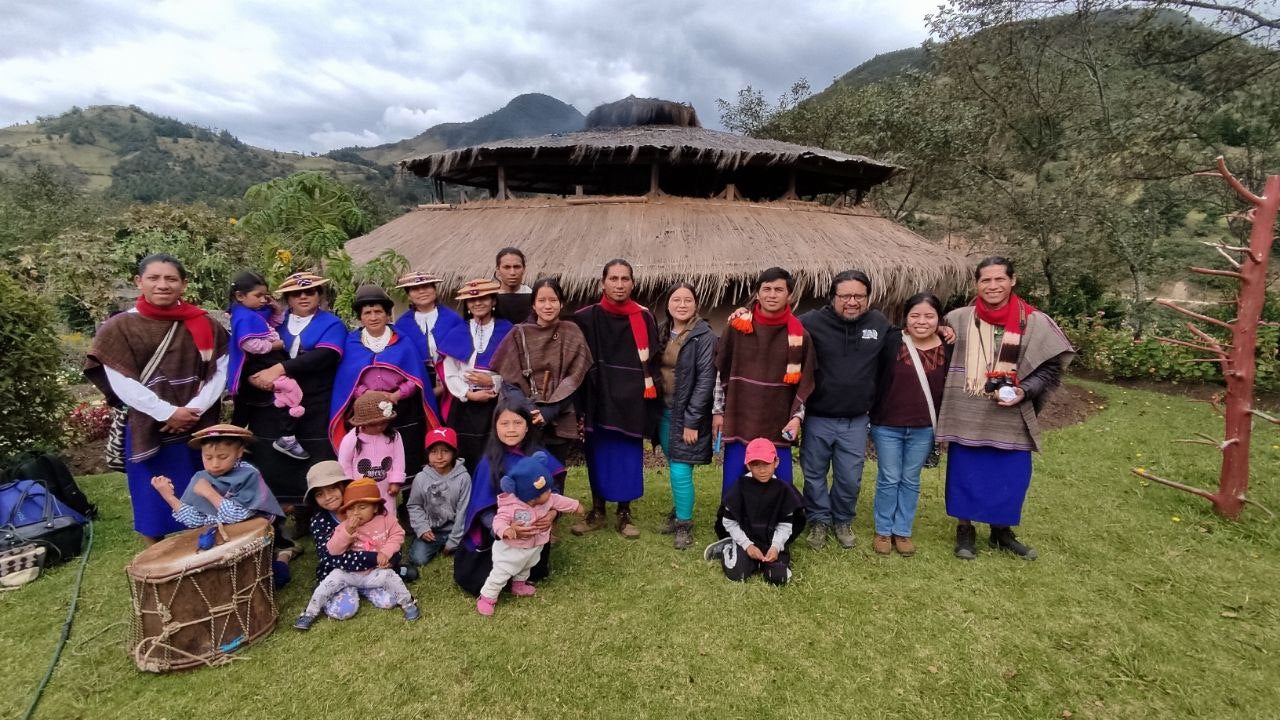
The process started with the identification of forgotten or endangered native seeds through research with families and Elders. Through purchase, barter, and donation, native seeds of tubers, cereals, fruits, grains, legumes, and medicinal plants were obtained from species such as ulluco, onion, potato, garlic, quinoa, amaranth, corn, beans, tomatillo, squash, and wild lentils, among many more. The seeds were integrated into the Yell Ya, or seed bank, through proper identification, origin, date of collection, and durability. Storage conditions were secured regarding humidity and light.
The intention of the seed bank is not its storage, however, but its movement and interaction with the traditional garden as a pillar of the Misak food system. "The agricultural cycle has the seed as a starting point and a point of arrival. It is a circular cycle where the seed is the benchmark and the guarantee of continuity," explain the members of Las Delicias Botanical Garden. The bank's seeds are lent to families to plant in the gardens. At the end of the cycle, they are returned and renewed. In 2020, Las Delicias Botanical Garden organized an exchange of seeds and knowledge where groups from other regions of Colombia participated and more seeds were obtained.
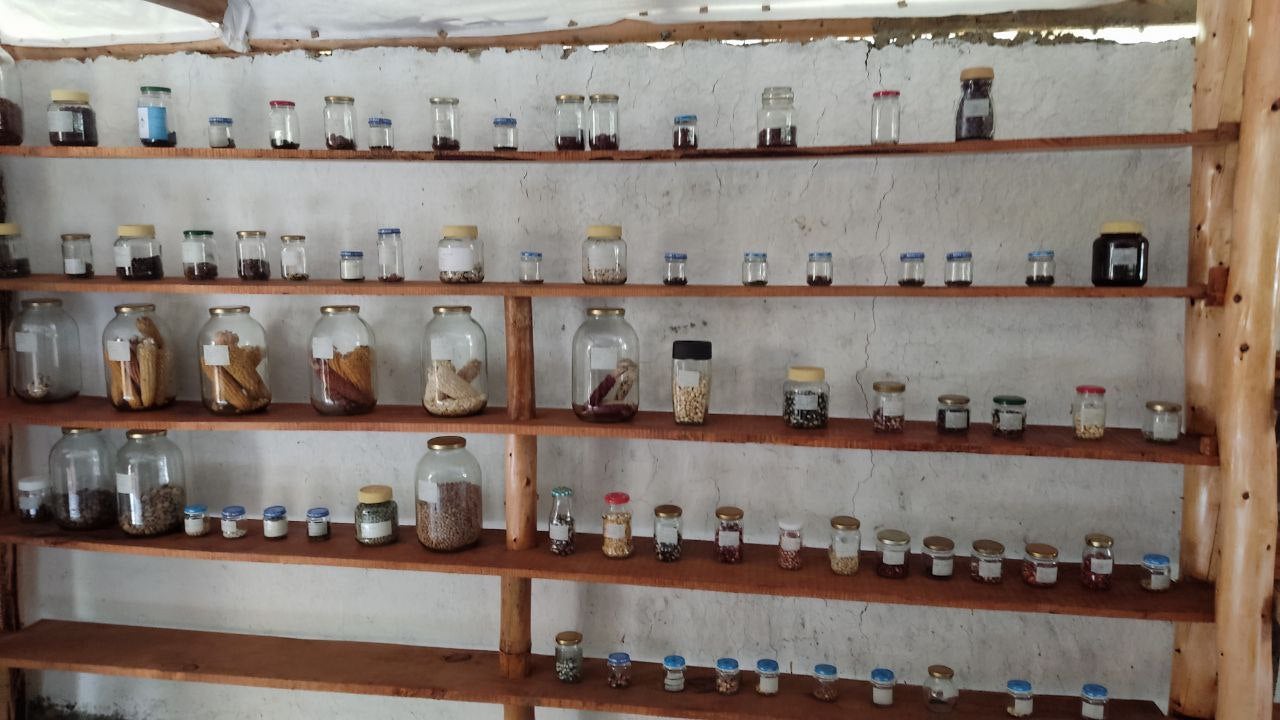
Las Delicias currently has 11 varieties of corn and has managed to recover native vegetable seeds that were being lost in the region. Currently, one person is in charge of the seed bank, but eventually, they want to extend the seeds’ protection to families, assigning a variety to each one. Las Delicias strives to include and respect Misak spirituality by asking permission from the soil and the seed, in accordance with the guidance of the Elders. Children and young people also participate, as "they are the new seeds that will continue to weave the wisdom of our ancestors," according to the members.
This work has allowed the Misak collective to reaffirm their search for sovereignty in relation to their food system, the understanding of their own forms of economy based on exchange, and the improvement of their quality of life and health through food. Members say the project was an opportunity to "recover the nutritional seeds of our territory and guarantee access to them by our local Andean communities, who are the true owners, and thus not have to depend on corporations that have appropriated many of our seeds and sold them back to us genetically modified."
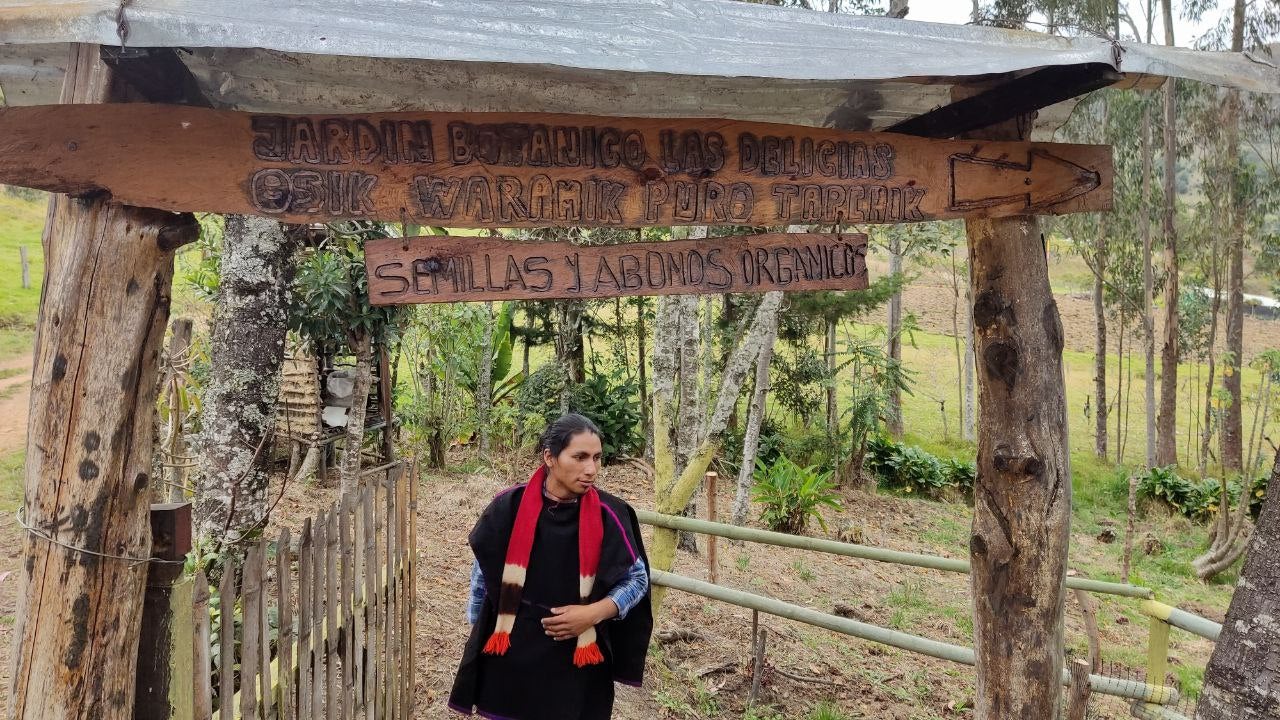
Through collective initiatives, Indigenous communities are working hard to maintain, strengthen, and recover their food sovereignty, both for the sake of their health and cultures and for the protection of biological diversity. Las Delicias Botanical Garden is an inspiration through their planning and organization, which included a diversity of participants and respect for Misak spiritual and Traditional Knowledge systems.
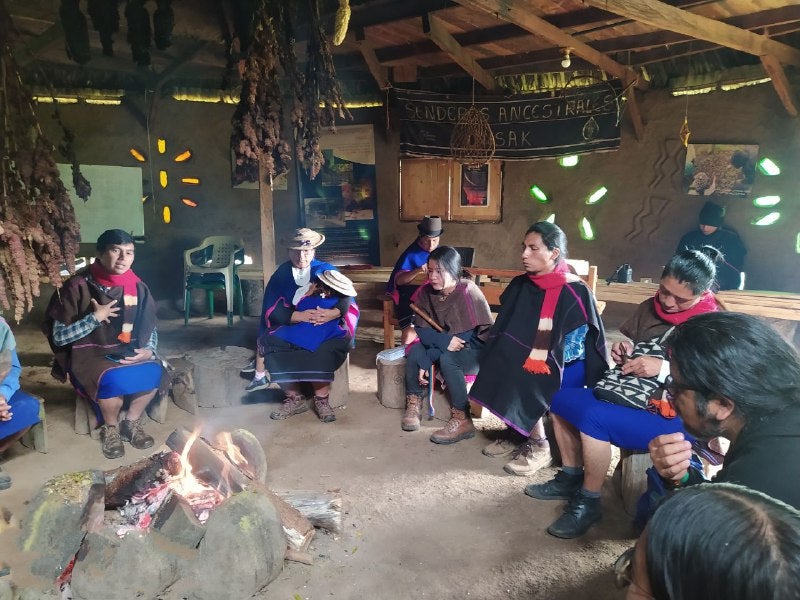
In 2020, Las Delicias Botanical Garden received a grant from the Keepers of the Earth Fund, an Indigenous-led fund at Cultural Survival designed to support Indigenous Peoples’ advocacy and community development projects globally. Since 2017, we have supported 238 projects in 38 countries through small grants and technical assistance, totaling $1,070,602. The funds go directly to Indigenous communities, collectives, organizations, and traditional governments to support projects designed by the communities and in accordance with their Indigenous values. Based on the United Nations Declaration on the Rights of Indigenous Peoples, we at Cultural Survival use a rights-based approach in our grantmaking strategies to support grassroots Indigenous solutions through the equitable distribution of resources to Indigenous communities.
